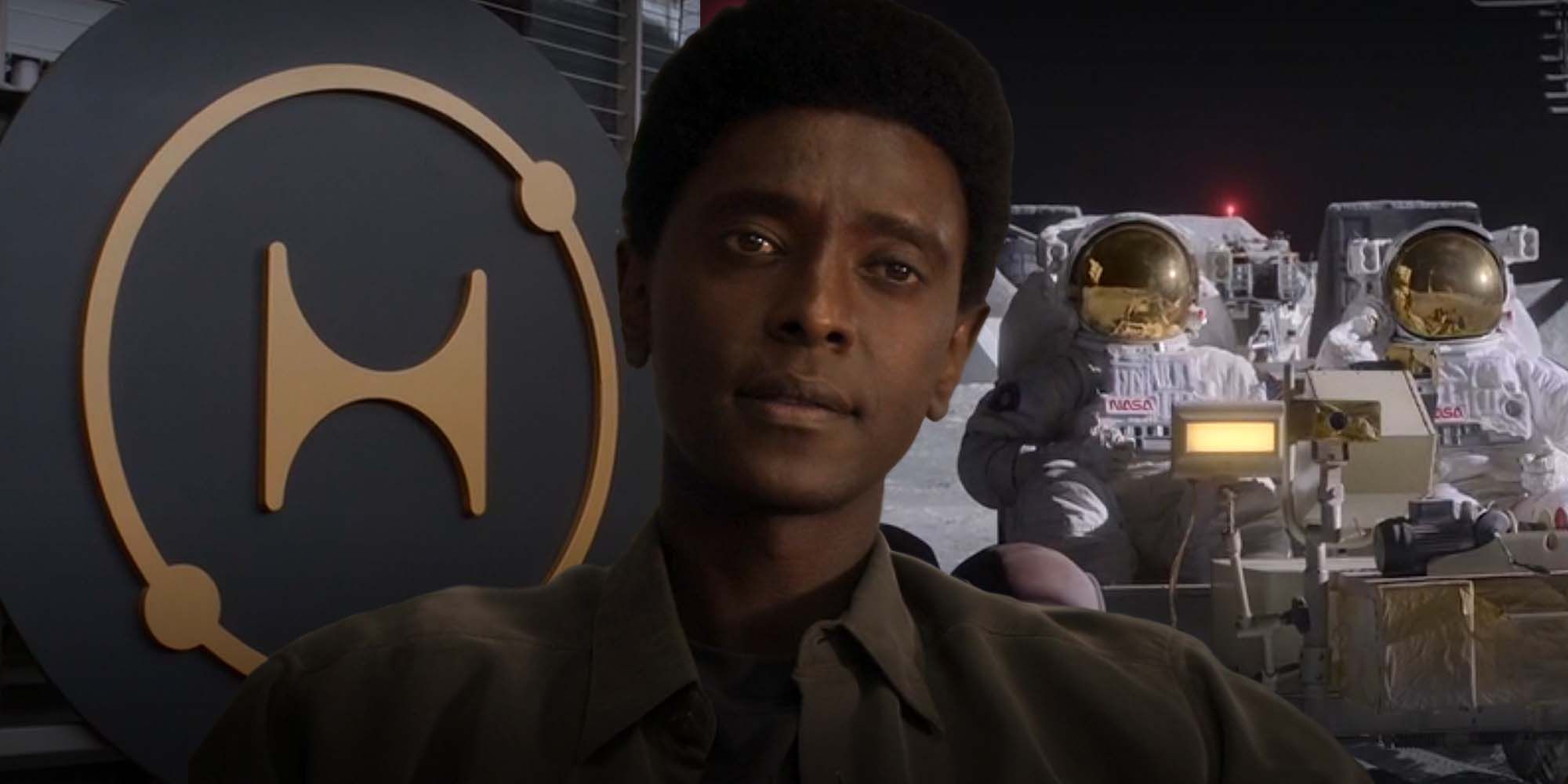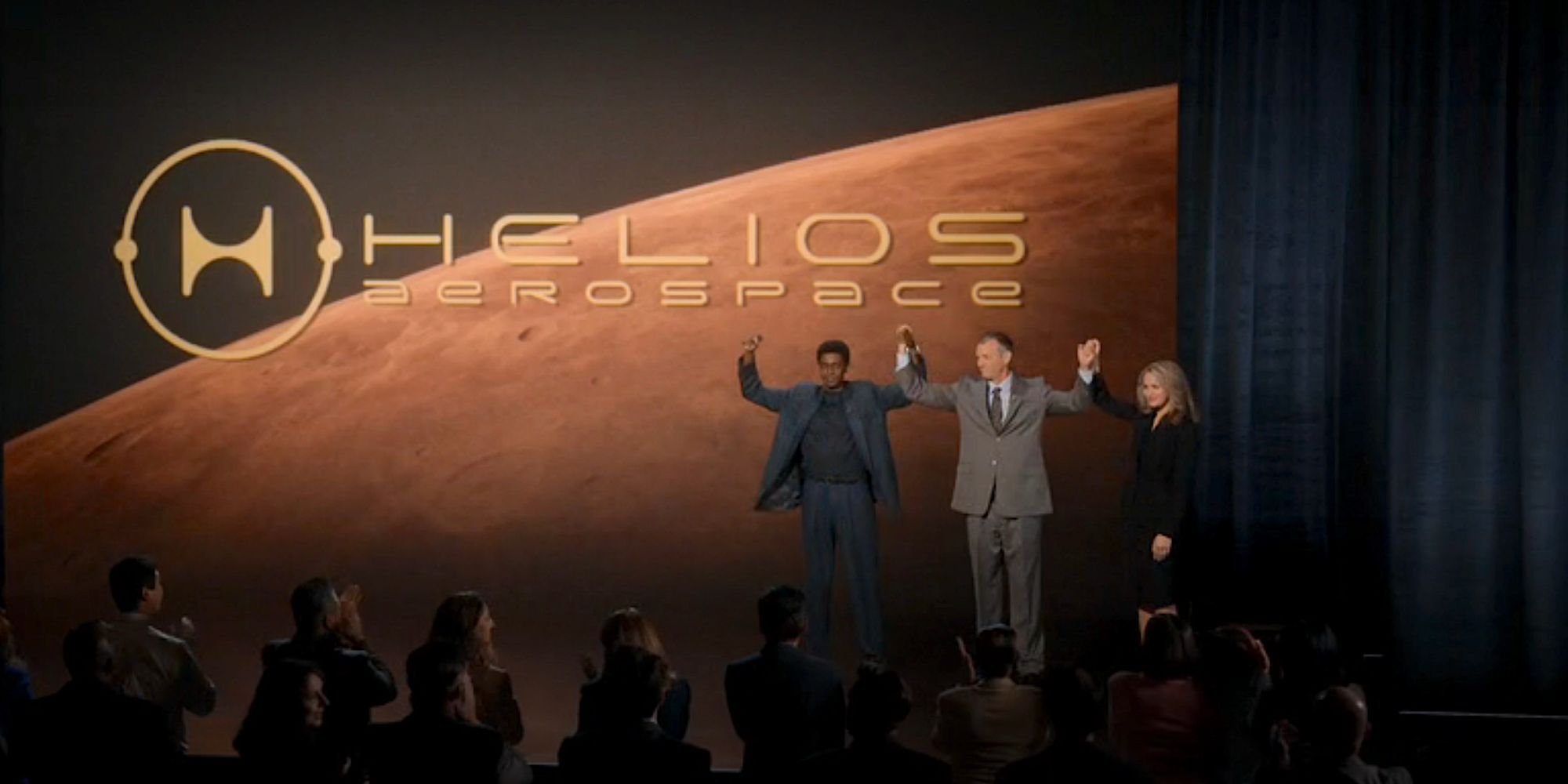
Warning: Spoilers for For All Mankind season 3, episode 2, "Game Changer."
For All Mankind season 3's race to Mars undergoes a much-needed raising of the stakes when Dev Ayesa's Helios joins the field of competitors. The son of an East African immigrant, Dev is an entrepreneur who founded Helios Aerospace as a private space travel company, in hopes of leading humanity's effort to colonize the solar system. In For All Mankind season 3, Dev resembles real-world billionaires like Elon Musk and Jeff Bezos, both of whom fund space exploration in the private sector. In the trial for mankind's first Mars landing, the introduction of a third party to rival NASA and the Soviets reveals enormous implications for the remainder of For All Mankind season 3.
An alternate timeline beginning with the USSR beating the Americans to the Moon Landing in 1969, For All Mankind sets season 3 in 1992. In the Apple TV+ series' present day, both nations have established military bases, with each occupying one-half of the lunar surface. For All Mankind seasons 1 and 2 were defined by Soviet-American tension, which makes the incorporation of Dev Ayesa's Helios an intriguing and compelling development.
In For All Mankind season 3, episode 2, Karen meets with Dev following the Polaris hotel disaster. With Karen's career in shambles as she's forced to dismantle her company, Dev offers her a chance at redemption by purchasing the hotel's structure to retrofit as a shuttle for Helios' Mars flight. Later, the two meet at Helios' headquarters and Karen proposes her ex-husband and famed astronaut Ed Baldwin to be Dev's mission commander after NASA dropped him. Dev agrees to bring Ed aboard and to Karen's surprise, hands her a job as well. Dev then organizes a televised announcement of the company's plan to travel to Mars in 1994 — two years before NASA and the Soviets. For All Mankind season 3's three-way space race is a welcome progression of the show's plot, as Dev and Helios inject a fresh aspect of both drama and realism.

Evidently a highly ambitious mind, Dev has already claimed victory for Helios in the Mars race. However, it would be short-sighted to believe that the competition has been decided. Helios' surprising announcement could inspire both NASA and the Soviets to accelerate their timelines in order to match Dev's team. The Americans were humiliated when they lost the Moon in For All Mankind season 1, so NASA is under pressure to not fail a second time. Additionally, it would be even more disappointing to lose to their own countrymen, so the U.S. government-funded NASA would certainly aim to avoid that for political reasons.
Furthermore, Karen and Ed's involvement with Helios adds a personal element to For All Mankind's space race. The ex-couple were illustrious figures among NASA's families in the past. While Ed has always expressed his qualms with the U.S. space agency's leadership, he has still made a name for himself as commander of its first Moon landing. The surprising twist that sees Ed and Karen land on the other side of the new space race promises to test their complicated relationship with each other, as well as with their adopted daughter Katy, who has become an astronaut herself.
Despite For All Mankind season 3's setting in the 1990s, it highlights the real-world emergence of private space companies led by rich businessmen. Musk's SpaceX and Bezos' Blue Origin, for example, both aim to break new ground in humanity's exploration of the cosmos outside of federal agencies. Thus, For All Mankind does well to show this connection to real-life, demonstrating how an increased emphasis on space exploration not only begets colossal advances in technology and political developments but also the rise of private citizens in the matter.
New episodes of For All Mankind air Fridays on Apple TV+.
Comments
Post a Comment